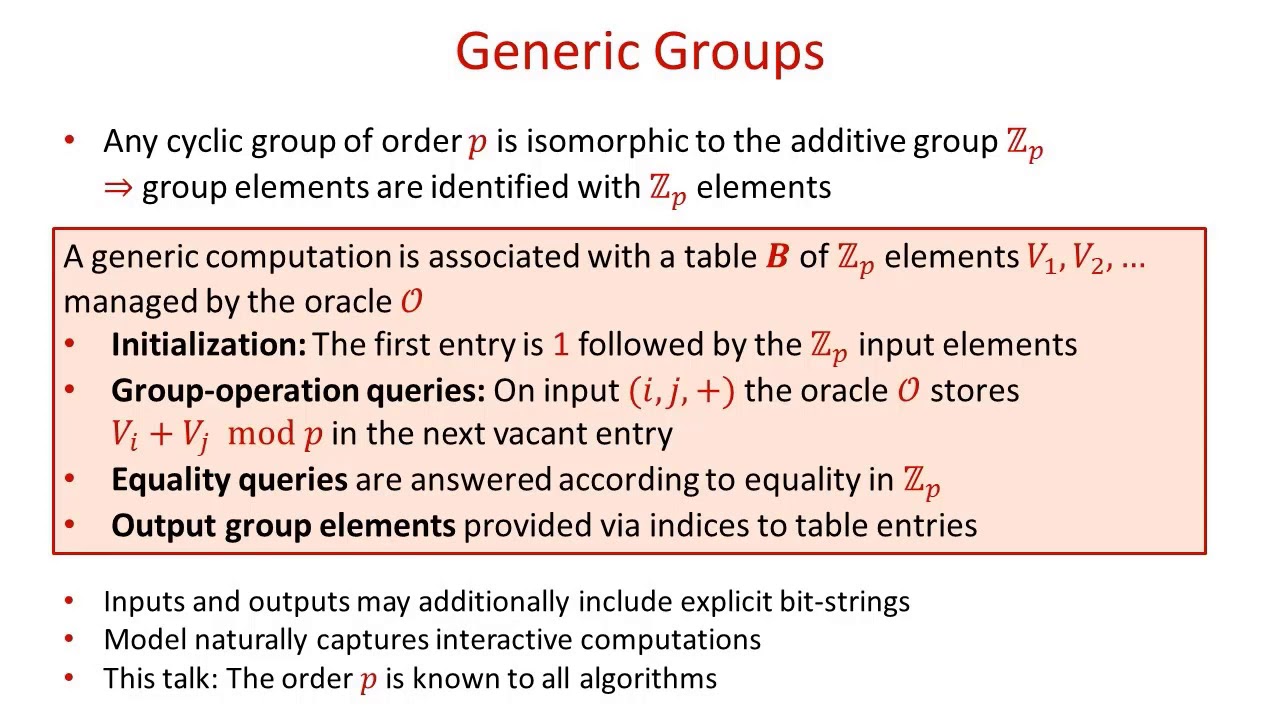Welcome to the resource topic for 2020/1106
Title:
Accumulators in (and Beyond) Generic Groups: Non-Trivial Batch Verification Requires Interaction
Authors: Gili Schul-Ganz, Gil Segev
Abstract:We prove a tight lower bound on the number of group operations required for batch verification by any generic-group accumulator that stores a less-than-trivial amount of information. Specifically, we show that \Omega(t \cdot (\lambda / \log \lambda)) group operations are required for the batch verification of any subset of t \geq 1 elements, where \lambda \in \mathbb{N} is the security parameter, thus ruling out non-trivial batch verification in the standard non-interactive manner. Our lower bound applies already to the most basic form of accumulators (i.e., static accumulators that support membership proofs), and holds both for known-order (and even multilinear) groups and for unknown-order groups, where it matches the asymptotic performance of the known bilinear and RSA accumulators, respectively. In addition, it complements the techniques underlying the generic-group accumulators of Boneh, B{ü}nz and Fisch (CRYPTO '19) and Thakur (ePrint '19) by justifying their application of the Fiat-Shamir heuristic for transforming their interactive batch-verification protocols into non-interactive procedures. Moreover, motivated by a fundamental challenge introduced by Aggarwal and Maurer (EUROCRYPT '09), we propose an extension of the generic-group model that enables us to capture a bounded amount of arbitrary non-generic information (e.g., least-significant bits or Jacobi symbols that are hard to compute generically but are easy to compute non-generically). We prove our lower bound within this extended model, which may be of independent interest for strengthening the implications of impossibility results in idealized models.
ePrint: https://eprint.iacr.org/2020/1106
Talk: https://www.youtube.com/watch?v=F2nImO480S4
See all topics related to this paper.
Feel free to post resources that are related to this paper below.
Example resources include: implementations, explanation materials, talks, slides, links to previous discussions on other websites.
For more information, see the rules for Resource Topics .
